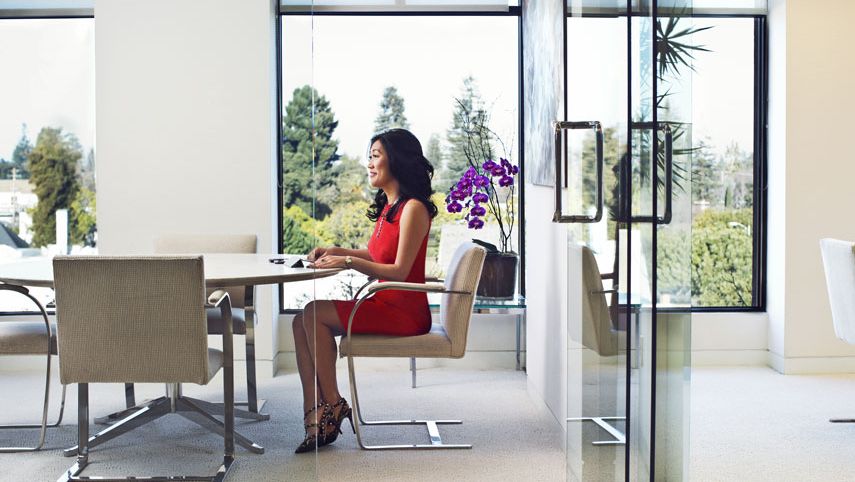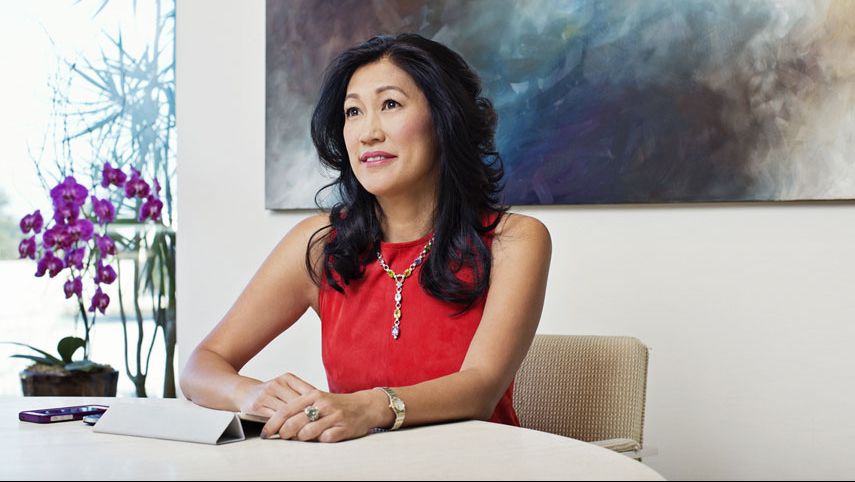Theresia Gouw: Silicon Valley Big Shot
Big shots in Silicon Valley either launch billion-dollar companies or, as in the case of venture capitalist Theresia Gouw of Accel Partners, invest in them. (She was instrumental in her firm's early funding of Facebook — the most lucrative tech investment ever.) MC caught up with Gouw to find out her secrets for spotting a winner — and how to become one.

MC: In 1996, after getting your MBA from Stanford, you founded Release, a software company you eventually sold. What did you learn from that experience?
TG: Being an early member of a startup was really valuable. It was my first exposure to venture capital—I helped our CEO raise three rounds of venture financing and worked with VCs on our board. The firsthand experience of helping ship the product, sign up the customers, land the big partnership, hire the customer support person—these were all incredibly relevant to how I work with my companies now.
MC: How did you shift from entrepreneur to venture capitalist?
TG: When I decided to leave Release, I was looking at joining another early-stage startup. One of my investors suggested that I consider venture capital. He thought my experience coupled with my engineering degree and MBA, plus my inherent interest in the early stages of startups, would be a good fit for this field. I took his advice and ended up joining Accel, where I'm now a partner.
MC: Your firm receives up to 1,000 pitches a year. How do you decide which are worth funding?
TG: Probably 1 in 20 [pitches] gets a call or a meeting. Then it goes down to 1 in 10 at the next stages. One of the biggest factors venture capitalists use to screen a startup is whether it's been introduced to you through someone known and trusted. And as far as the entrepreneur, [I ask myself] how passionate is this person? It takes about eight to 10 years from Series A [the first round of funding] to some exit event [the company is acquired or goes public, for example], so this is someone you're going to work with for a long time.
MC: You've invested in several women-run, women-targeted companies like Glam, LearnVest, and BirchBox. Is it fair to say you prefer these types of companies?
Get exclusive access to fashion and beauty trends, hot-off-the-press celebrity news, and more.
TG: Not necessarily. It's partially the sectors I invest in. I tend to invest a lot in social commerce, and the numbers are pretty clear on the Web that women are 60 to 70 percent of its core audience. And if you look at who is more likely to tweet and share posts, the majority are now women.
MC: What's the best career advice you have ever received?
TG: Always go for the opportunity that presents more upside. By that I mean, if you're thinking about two different jobs, don't look at the opportunities as just what they are today. Which one is going to be more interesting to you six, 12, 24 months from now? And don't focus on what your initial title is going to be. For most fast-moving jobs, whatever you're doing today will be different in six months. And always make sure you're in a job that you love, because whenever you're in the position of juggling career and family, you know you're going to love your kids—give your career an equal chance.

MC: You're a mother of two and on the road 100 days a year. How do you make that work?
TG: I'm really fortunate to have a lot of family nearby. My mom and dad live about five miles away, and I have a terrific nanny. When I don't travel, I live within a really small radius—eight blocks between my office, both of my kids' schools, and my house. So on the 265 days when I'm not traveling, I really don't go very far. When I'm here, I'm really here.
MC: What do you make of Yahoo CEO Marissa Mayer's six-week maternity leave?
TG: I think it's a very individual decision, and no one should tell anyone what to do. The fact is you don't know until you're in it. I myself ended up coming back after a few weeks. We should applaud Marissa whatever she decided. Male or female, pregnant or otherwise, she took a tough job, and I hope she's successful.
MC: You're one of just a handful of women in your profession. Why are women VCs still such a rare breed?
TG: I've been here 14 years, and, in the past five alone, I've already seen a lot of positive changes. It all starts with the entrepreneurs. Most VCs have some sort of background in tech companies. Founders also often have a technical undergraduate degree and an MBA. At each step along the way, the numbers of women are getting better. Business school is something like 40 percent female now. So, as we start to improve the numbers upstream, then we'll have more women entrepreneurs who will then become investors and possibly venture capitalists.
MC: I've heard there's a strong camaraderie among the women in Silicon Valley. Facebook chief operating officer Sheryl Sandberg's dinner parties, for example, are legendary. What are some ways women in this "sorority" support one another?
TG: Everybody is really good about making referrals. I know several people who are part of Sheryl's network and have been added to public company boards recently—I'm pretty sure that's not a coincidence. I used to go to these women's networking events and not tell anyone I was going. Now people are trying to figure out when the next event is and ask, "Could you possibly say something to so-and-so because I know you're going to see them?" It's been wonderful to see it evolve, because it wasn't there not long ago.
MC: Rumor has it you own a massive collection of designer shoes. Do tell.
TG: If I had to guess, more than 100, but honestly, it's better not to know. My favorites are a pair of Valentino over-the-knee motorcycle boots—they're stylish and fun, but they're flat so I can wear them running around on the weekend. But I almost never buy shoes full price. Part of the fun is sorting through the sale rack at Neiman Marcus.